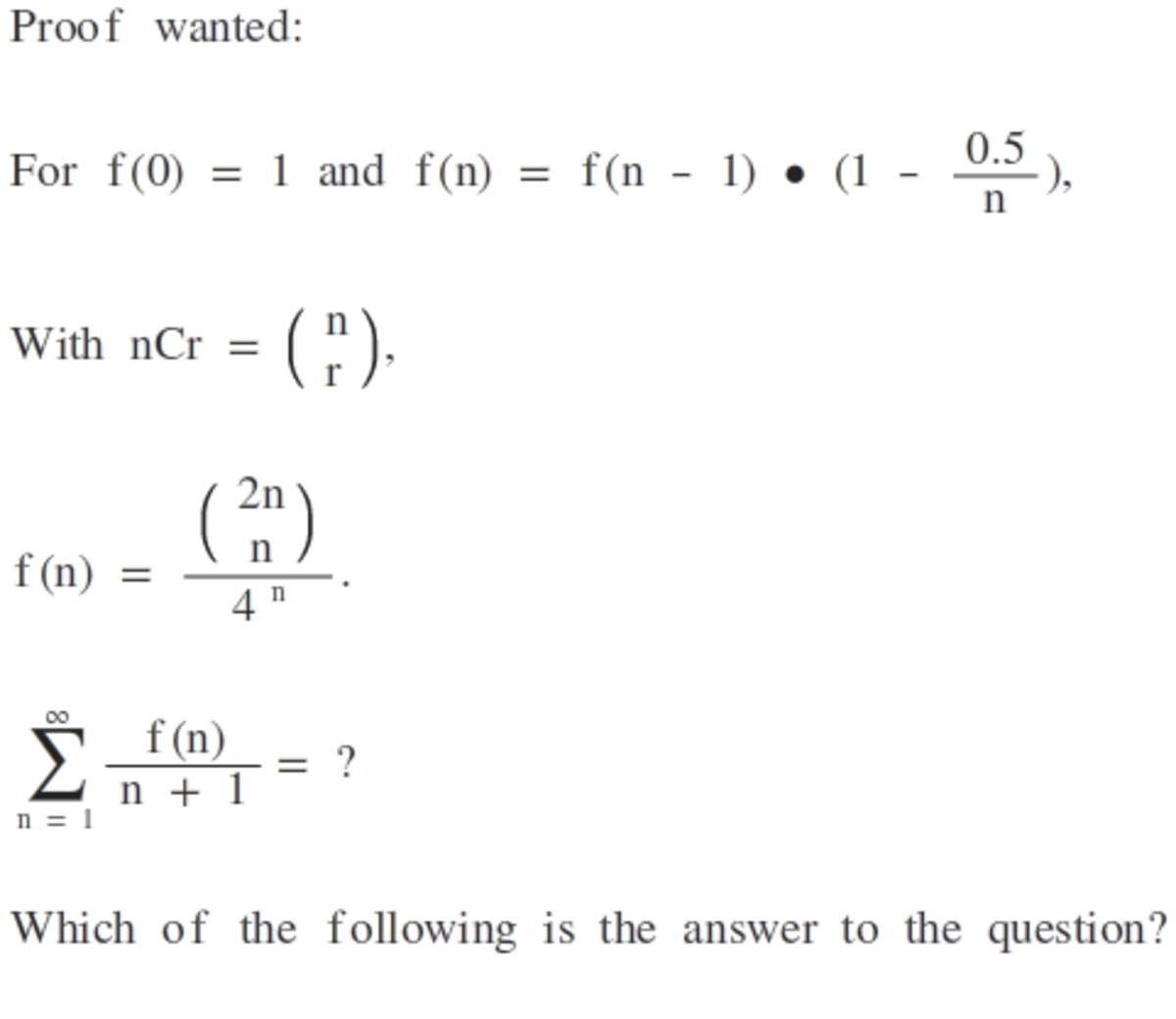( )/2+( )( )/3+( )( )( )/4+...= ?
Calculus
Level
pending

Found from flat ellipse perimeter.
None of above
1
11/ 15
Ln 4
5/ 6
This section requires Javascript.
You are seeing this because something didn't load right. We suggest you, (a) try
refreshing the page, (b) enabling javascript if it is disabled on your browser and,
finally, (c)
loading the
non-javascript version of this page
. We're sorry about the hassle.
∫ 0 1 ( 1 − x ) − 2 1 d x = [ 1 C 0 x − 2 C 1 x 2 + 3 C 2 x 3 − 4 C 3 x 4 + … ] 0 1
⇒ 2 = 1 + 2 2 1 + 3 2 1 4 3 + 4 2 1 4 3 6 5 + 5 2 1 4 3 6 5 8 7 + …
⇒ 1 = 2 2 1 + 3 2 1 4 3 + 4 2 1 4 3 6 5 + 5 2 1 4 3 6 5 8 7 + …
One piece of Cayley's sum is proven up to here. Together with further extra completion:
∫ 0 1 x ( 1 − x ) − 2 1 − C 0 d x = [ − 1 C 1 x + 2 C 2 x 2 − 3 C 3 x 3 + 4 C 4 x 4 − … ] 0 1
∫ 0 1 x ( 1 − x ) − 2 1 − 1 d x = 1 2 1 + 2 2 1 4 3 + 3 2 1 4 3 6 5 + 4 2 1 4 3 6 5 8 7 + …
∫ ϵ 1 − ϵ x ( 1 − x ) − 2 1 − 1 d x = 1.386294361119+ = Ln 4 with ϵ = 7.013825370499E-08
using 1,000,000 strips of parabolic curves. You may evaluate in non-numerical method.
The two sums of Cayley's series are proven with this definite integral completed. Not less than a million terms are required with a 15 significant figure calculator! Note that numerical integral is much faster than series summation with ϵ to play a trick!
When detached, B ( 2 1 , 0) - (- − ∞ ) = Γ (0) - ∞ = ∞ - ∞ = {indeterminate}
With non-numerical approach, let x = sin 2 θ :
Final integral = 2 [ L n 2 c o s 2 2 θ 1 ] 0 2 π = 2 [Ln 1 - Ln 2 1 ] = L n 4
P r o o f O f C a y l e y ′ s S u m s C o m p l e t e d !